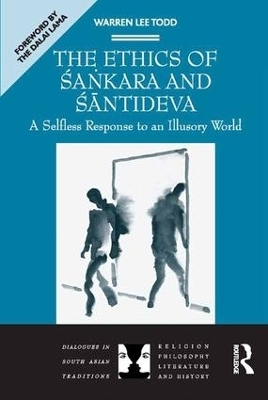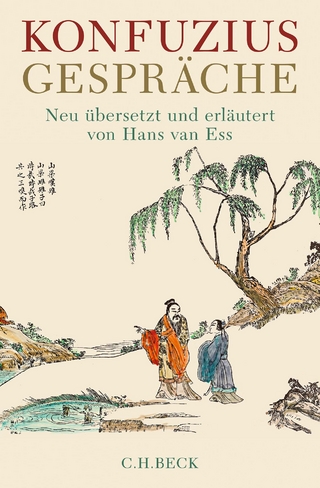
The Ethics of Sankara and Santideva
A Selfless Response to an Illusory World
Seiten
2013
Routledge (Verlag)
978-1-4094-6681-9 (ISBN)
Routledge (Verlag)
978-1-4094-6681-9 (ISBN)
Comparing the metaphysics and ethics of two of the most influential Indian masters, Sankara and Santideva, Todd shows that the methodologies and aims of these Buddhist and Hindu masters trace remarkably similar cross-cutting paths. Treating Buddhism and Hinduism with equal respect.
Exploring the philosophical concerns of the nature of self, this book draws from two of the most influential Indian masters, Śaṅkara and Śāntideva. Todd demonstrates that an ethics of altruism is still possible within a metaphysics which assumes there to be no independent self. A new ethical model based on the notions of ’flickering consciousness’ and ’constructive altruism’ is proposed. By comparing the metaphysics and ethics of Śaṅkara and Śāntideva, Todd shows that the methodologies and aims of these Buddhist and Hindu masters trace remarkably similar cross-cutting paths. Treating Buddhism and Hinduism with equal respect, this book compares and reinterprets the Indian material so as to engage with contemporary Western debates on self and to show that Indian philosophy is indeed a philosophy of dialogue.
Exploring the philosophical concerns of the nature of self, this book draws from two of the most influential Indian masters, Śaṅkara and Śāntideva. Todd demonstrates that an ethics of altruism is still possible within a metaphysics which assumes there to be no independent self. A new ethical model based on the notions of ’flickering consciousness’ and ’constructive altruism’ is proposed. By comparing the metaphysics and ethics of Śaṅkara and Śāntideva, Todd shows that the methodologies and aims of these Buddhist and Hindu masters trace remarkably similar cross-cutting paths. Treating Buddhism and Hinduism with equal respect, this book compares and reinterprets the Indian material so as to engage with contemporary Western debates on self and to show that Indian philosophy is indeed a philosophy of dialogue.
Dr Warren Lee Todd gained his MA in Buddhist Studies under Prof. Peter Harvey at Sunderland University, and went on to Lancaster University to complete his PhD in Religious Studies under Prof. Chakravarthi Ram-Prasad. He co-taught the MA in Buddhist Studies at Sunderland, before moving with the course to the University of South Wales, where he is currently Visiting Lecturer in Buddhist Philosophy. He also teaches Buddhism at Mahidol University (MUIDS), Thailand.
Chapter 1 The Self; Chapter 2 A New Ethical Model; Chapter 3 Situating ?a?kara and ??ntideva; Chapter 4 Their Common Approach to the World; Chapter 5 Knowledge and Liberation; Chapter 6 A Selfless Response to the World; Chapter 7 Marginal Cases; conclusion Conclusion;
| Erscheint lt. Verlag | 24.10.2013 |
|---|---|
| Reihe/Serie | Dialogues in South Asian Traditions: Religion, Philosophy, Literature and History |
| Verlagsort | London |
| Sprache | englisch |
| Maße | 156 x 234 mm |
| Gewicht | 566 g |
| Themenwelt | Geisteswissenschaften ► Philosophie ► Östliche Philosophie |
| Geisteswissenschaften ► Religion / Theologie ► Buddhismus | |
| Geisteswissenschaften ► Religion / Theologie ► Hinduismus | |
| ISBN-10 | 1-4094-6681-7 / 1409466817 |
| ISBN-13 | 978-1-4094-6681-9 / 9781409466819 |
| Zustand | Neuware |
| Haben Sie eine Frage zum Produkt? |
Mehr entdecken
aus dem Bereich
aus dem Bereich


